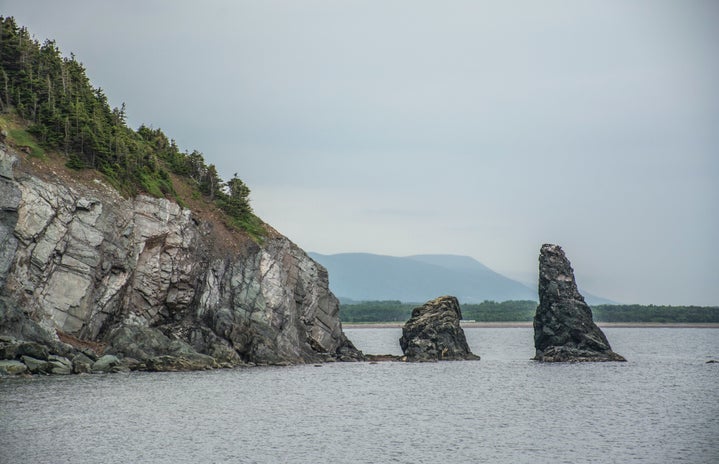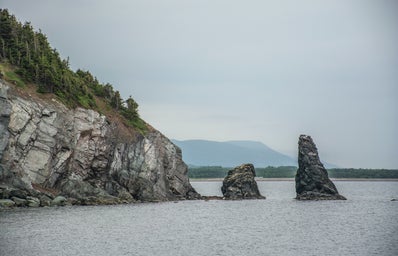British Columbia: An Untold History, a four-part docuseries detailing the complex history of the land we call “British Columbia,” is set to premiere on Knowledge Network on October 12. The series highlights stories of oppression and resistance that are too often omitted from textbooks, such as that of Indigenous peoples, Chinese, Japanese, Punjabi and Black communities, the labour and environment industry, among others. Research and expertise were provided by several prominent BC historians, authors, and scholars.
Among these experts is Naveen Girn, Director of Strategic Initiatives and Stakeholder Relations in the Office of the Premier of British Columbia, as well as the co-host of The Nameless Collective Podcast, which aims to uncover untold stories from Vancouver’s past. He also graduated from Simon Fraser University in 2005, with a degree in English literature, political science, and history.
I had the opportunity to speak to Mr. Girn during a video call about his involvement in the project as well as the timeliness of a docuseries like An Untold History. Full disclosure – I’m a brand and marketing co-op student at Knowledge Network and have seen the docuseries in its entirety. To be honest, when I first got the job, I assumed that An Untold History would be your standard history documentary, highlighting all the same events that I’d learned about while attending public school in the Fraser Valley my entire elementary and secondary education. When I was provided access to the series’ screeners months ahead of its premiere, I mentally prepared myself to re-learn about the Fur Trade for the next four hours.
I am happy to report that that was not the case. The aptly-titled British Columbia: An Untold History aims to shed light on the darker shadows of our province’s complicated past by amplifying voices that have been muffled for generations. As I told Mr. Girn during our call, I would feel the need to tell my friends about what I’d learned from each episode, even if it wasn’t a pleasant story to tell, echoing his own sentiments expressed in the final scene of the docuseries: “Stories of struggle, of civil rights, of equality, can inform our future. It’s really about doing the work to provide a space for those voices to be heard.”
Prior to working for the province, Girn was a curator of several exhibitions that celebrated and explored South Asian culture and history. Conducting research for these exhibits, however, was often a challenge, as official archives heavily lacked information about the stories that he was trying to tell. As a result, he had to take his research into the field, which meant directly asking elders to share their memories, photos, books, and records with him. Not only did this material contribute to the exhibitions, but they also exposed sides of BC’s past that had been swept under the rug in favour of a more palatable interpretation of events. One could say that Girn was telling some of BC’s untold stories long before An Untold History was even in the works.
“I guess I got involved luckily is the way to say it. The values that [the production team] had with this documentary series was deconstructing how history had been told in the past.” says Girn. “The work that I had been doing in my professional life was a lot about bringing alternative voices into museum spaces and art gallery spaces.”
Born and raised in Vancouver, Girn was taught the same standard BC history curriculum as everyone else. As a high school student, he recalls learning about events such as the Komagata Maru incident of 1914, Japanese Canadian Internment in the 1940s, and the Chinese head tax that lasted from 1885 to 1923, in a single week dedicated to lesser-known parts of BC history.
“And that was it – one week out of twelve years of school.” he says. “When you only have one day to tell those stories, we try to silo history into “here’s the South Asian story”, “here’s the Chinese Canadian story”. When we try to do that, it makes it really hard to see the global context of how things were happening.”
“Sometimes communities of colour are only allowed to tell one story. It speaks to what stories are allowed to get told.”
It wasn’t until Girn began his post-secondary education at SFU that he began learning about what took place in-between and beyond those major events in Asian-Canadian history. What he discovered were generations of injustices that had been kept out of social studies class in favour of a more sanitized version of BC’s history.
Girn says that the release of a major documentary like An Untold History is well-timed. With a surge in Anti-Asian hate crimes and the atrocities of the residential school system finally coming to light, it is integral for our community to reflect on past injustices: “You can’t rush into [reconciliation]. The empathy has to go into it. The listening has to go into it.”
It is apparent that everyone who worked on the series shared at least one common goal in its development: to help usher in a new era in British Columbia – one where acknowledging the shadows of the past is not an afterthought, but the starting point in reconciliation.
As the saying goes, “those who fail to learn from history are doomed to repeat it.” With the very first National Day for Truth and Reconciliation having just passed, it has become apparent that more and more British Columbians are seeking out ways to educate themselves and reflect on the lives that were lost or damaged in the construction of our province.
“It’s kind of trite to say that “if you don’t know your past, then you don’t know your future”. But in many respects – it’s about belonging.“We were here, too. Our stories also made a difference. We also contributed.” People really love this country and what it stands for, and when you love something a lot and it doesn’t love you back by including you – that can be really disheartening. That can be really frustrating.” says Girn, when I ask him why history matters to him – not just how it has shaped his career, but as a Canadian. “It’s a moral obligation to right historical wrongs; not in a saviour context, but [because] it’s the right thing to do.”
The first episode of British Columbia: An Untold History will premiere on Knowledge Network at 9 PM on October 12. It will be available to stream for free online at www.knowledge.ca.


